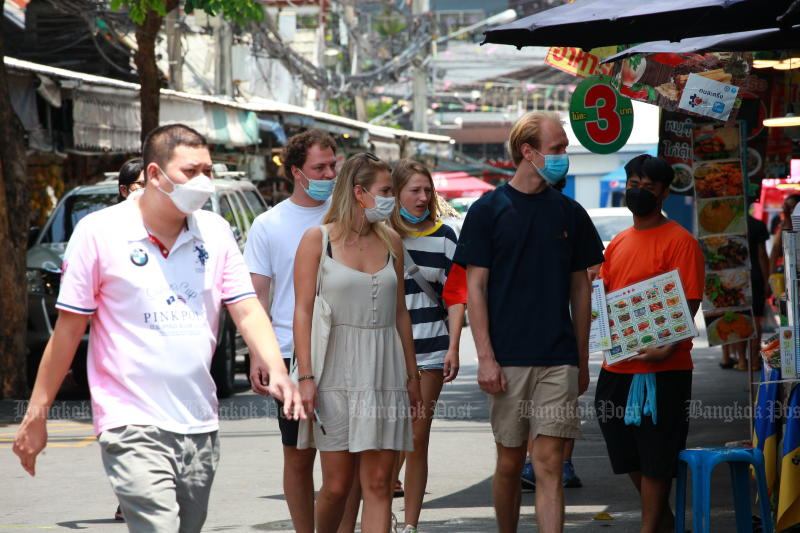
The Thai economy in April showed signs of improvement in all areas, particularly the tourism sector, supported by the relaxation of travel restrictions.
According to the Bank of Thailand, the country's economy in April improved from the previous month. In particular, the tourism sector picked up thanks to both local and foreign tourists, in line with easing Covid-19 containment measures in Thailand and loosened border rules.
In April, the number of foreign tourist arrivals after seasonal adjustment was 293,350, up from 210,836 in March and contributed by a wide swath of nationalities.
Year-to-date offshore tourist arrivals tallied around 791,000. However, the number of foreign tourists from Russia and Eastern Europe dropped off as a result of Russia's invasion of Ukraine, said Chayawadee Chai-Anant, the central bank's senior director, corporate communications department.
"The improving tourism industry also supported the service sector, especially the tourism-related transport sector, as well as bolstering domestic consumption and the labour market," Ms Chayawadee said.
Thai travellers and the hotel occupancy rate also improved in April compared with the previous month, while the service production index, excluding gold, increased to 11.9% in April from 2.9% in March.
Private consumption indicators in April after seasonal adjustment grew 8.1% year-on-year, rising significantly from 0.8% in the previous month on the back of moderate spending in services and non-durable goods.
This improvement reflected declining concerns over the Omicron outbreak, which led to improvement in various economic activities. However, consumer confidence continued to decline because of concerns about rising living costs, which could suppress private consumption, said the central bank.
She said the overall labour market improved in April, reflecting positive sentiment from the freelance market.
The number of employees registered under the Social Security Act's Section 33 increased to 11.2 million in April, rising 0.4% from the previous month.
However, the country's labour market remains vulnerable and the central bank plans to closely monitor it.
In April headline inflation was 4.65%, a slight decrease from the previous month, mostly due to lower energy inflation, while core inflation was stable.
From the beginning of May, economic activities have been picking up, but spending remains pressured by the rising cost of living because of the high inflation rate.
The country's export sector also improved in April. The value of merchandise exports, excluding gold and after seasonal adjustment, increased from the previous month in several categories, said the central bank. Private investment indicators, after seasonal adjustment, also improved from March as outlays on construction rose. Investment in machinery and equipment declined from both capital imports and commercial vehicle registration.







